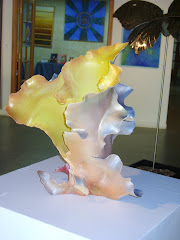E.E.: You ask some fascinating questions. My Mentor defined Heaven and Hell in these terms: Heaven is the feeling of Unity, Hell is the feeling of separation. I'd add that we can experience each to various degrees. But the important thing is, like Shakespeare said, "... thinking makes it so." The Heart of each of us desires whatever the mind convinces us leads to the feeling of Unity. Since the mind works by making destinctions, it is quite capable of misleading us as to what will, in Fact, lead us to that certain, gut felt, intuitve knowledge of Unity. My sense is, that ultimately all of our experimentation will lead to the discovery that there never was a separation, but the we created the sense of it in order to find that out at an experiential level, no matter what the cost. Love, it seems to me, at one level, is absolutly impartial and will let you find your own way. That way it is utterly and irrevocably yours. You made it, you own it, and ultimately you know what it means. Maybe our difficulties stem from trying to find happiness as an addition of something from "out there" as we decline to percieve that the difference between "in here" and "out there" is purely cognative and is supported by English grammar which is emphatically not true to fact. I think that fits both with many Eastern systems as well as with quantum physics. It is the way of complete responsibility. (See my journal entry on Ho'oponopono.) I think also that it fits with Christianity as it was originally intended before its coruption. (I agree with the famous Christian playwrite, G.K. Chesterton: "It's not that Christianity doesn't work, it just hasn't been tried yet."*) This Way of complete responsibility has been taught for ages everywhere under many names and is, as far as I can see, the root of many religions. Religions happen as an attempt to codify the undefinable, experiential Teaching of a Master and are therefor poor substitutes for being in The Presence. It is also why those who accept the responsibility to whatever extent seem to naturally seperate from those imersed in the re-ligion** of dogma. One could write books on the awesome miracle of it all, but for "pop" digests, one might see Down the Rabbit Hole and The Secret, both oversimplifed, yet useful.A moment or forever? Most folks think that eternity has duration, with which come the commensurate myths of Heaven and Hell. That it doesn't have duration is what makes it eternal and therefore able to support a moment and one's thinking it is this or that. Now there's another book!
I am wondering how common, and how popularly unsupported in the West, your experience with your Hindu friend might be, the one where you realized "IS IS." I was what, maybe 17, and walking throught the house thinking about the nature of things and it hit me: IS IS!!! It was such a remarkable insight for me that I, right there at that moment, penciled it in under the light switch for the kitchen overheads. It was there for years. I could walk by and see it even years later when I came to visit.
This is not where I would go in to my 28 year association with my Mentor, but suffice it to say that just at the time that, due to the undeniable pressure of experience, I started to question my birth religion, I met him and very soon after I heard his first lecture he reconciled my ambiguities about Eastern/Western religious thought in a spontaneously given poem.
For me it had yet another resonance. My Dad was an armchair Egyptologist. Of course, one of the great goddesses in that pantheon is ISIS. I later became more intruiged by MAAT, but at the time of my inspiration I was quite taken by the coincidence in the name of Isis.
Lately, in addition to the Ho'oponopono, I have been reading Byron Katie. You might enjoy her work as well. It is VERY IS IS.*this statememt of Chesterton's resonates for me with what Gandhi said when he was asked what he thought of Western civilization. He said "I think it would be a very good idea."
** look up the root meaning of the word; compare to the verb "to be," 1st person singular.
Friday, April 27, 2007
In the Moment
Subscribe to:
Post Comments (Atom)





















2 comments:
Cool website, I hadn't come across antoniuz.blogspot.com previously during my searches!
Continue the great work!
Hey - I am certainly delighted to discover this. Good job!
Post a Comment